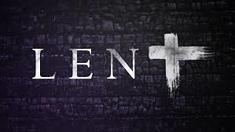| Proverbs 30:1-9 2.21.18 We all know what it is like to be in need. From the time we are infants we are aware of being in need of someone else. Once we grow and have people that we are responsible for we understand that we are needed. Somewhere there is a shift from being in need to supplying the need for others. Actually, there is no shift at all. We are never totally out of the realm of having need. We may fool ourselves or we may just ignore it, but the truth is that we are in need. Our need for something outside of ourselves only grows as we grow, despite how we may feel or process our world. Proverbs 30:1-9 echoes this idea of need. This is not just need of human aid, but of the divine. Let’s read this passage: “I am weary, God, but I can prevail.[a] 2 Surely I am only a brute, not a man; I do not have human understanding. 3 I have not learned wisdom, nor have I attained to the knowledge of the Holy One. 4 Who has gone up to heaven and come down? Whose hands have gathered up the wind? Who has wrapped up the waters in a cloak? Who has established all the ends of the earth? What is his name, and what is the name of his son? Surely you know! 5 “Every word of God is flawless; he is a shield to those who take refuge in him. 6 Do not add to his words, or he will rebuke you and prove you a liar. 7 “Two things I ask of you, Lord; do not refuse me before I die: 8 Keep falsehood and lies far from me; give me neither poverty nor riches, but give me only my daily bread. 9 Otherwise, I may have too much and disown you and say, ‘Who is the Lord?’ Or I may become poor and steal, and so dishonor the name of my God. We don’t know a lot about our brother Agur here. The passage lacks biographical information about him. While this is not a Wikipedia entry, we can learn a lot about Agur and who he is based on his words. From a very macro-level we learn that Agur is a man that is in need. He readily acknowledges in vs. 2 that he does not have understanding. Further, in vs. 3 he admits that he has not attained as much knowledge as the Holy One (Moses, Jesus?). There is a sense of frustration and need here. Agur over and over makes a point to show how great God is and how he is not, well, great. He is a man in need of God. Agur’s need isn’t just implicit here – it’s not just something that we read into the text. He explicitly asks God for two things. First, that God would keep falsehoods and lies from Agur. Second, that God would give him neither poverty nor riches. He wants to make sure he keeps his relationship to God in a proper perspective. Of all the things that Agur is – he is a man in need. Returning to my first comments here, i.e. not needing help as we grow. Agur seems to be mature beyond his years. For the purposes of our reflection today, there is one more thing that Agur is: Agur is humble. He acknowledges his need for God despite his age or wisdom that he may or may not have attained. This is seen no more clear than in vs. 5-6. Agur emphasizes the importance and truthfulness of God’s Word. God (and His Word) is a shield to those who take refuge in Him. When Agur is in need, he knows where to go. This is a very fitting passage for Lenten season. During this season we reflect on our need for Jesus. We, like Agur, are in need of God’s Word. We are fortunate enough to have God’s Living Word with us in the person and work of Christ Jesus. Jesus is our refuge if we allow ourselves to admit our need for Him. |
|
0 Comments
 Matthew 6:1-6 Ash Wednesday – 2018 We all want credit for something. When we do a good deed we like to be recognized for it. Maybe we are self-indulgent, maybe we have low self-esteem, nevertheless we want credit for many things that we do. When we don’t get credit from others we often want credit from God. We want our good deeds to lead to good benefits that we get from God. It’s a tit for tat – good things are blessed by God by giving us more money, etc. We treat God like an ATM.; we just enter the right code and God just spits out what we need. Understood in another way, our good deeds are like a lottery ticket that guarantees us a reward – we always have winnings coming to us! To challenge the status quo we look at Matthew 6:1-16: 6 “Be careful not to practice your righteousness in front of others to be seen by them. If you do, you will have no reward from your Father in heaven.2 “So when you give to the needy, do not announce it with trumpets, as the hypocrites do in the synagogues and on the streets, to be honored by others. Truly I tell you, they have received their reward in full. 3 But when you give to the needy, do not let your left hand know what your right hand is doing, 4 so that your giving may be in secret. Then your Father, who sees what is done in secret, will reward you.5 “And when you pray, do not be like the hypocrites, for they love to pray standing in the synagogues and on the street corners to be seen by others. Truly I tell you, they have received their reward in full. 6 But when you pray, go into your room, close the door and pray to your Father, who is unseen. Then your Father, who sees what is done in secret, will reward you. Here in this passage Jesus we have part of Jesus’ first teaching – Sermon on the Mount. He is teaching those around Him, especially the disciples, how they should live. Following Jesus is not like following other priests, leaders, or people in general. Jesus demands behavior that resets the expectations of what it means to be religious. The disciples were no longer called to be religious, but to be disciples. Being disciples meant to give your heart, soul, and mind to God. It is not just rote behavior, but also something greater than that. This passage is not necessarily only about the actions of the disciples. Yes, it is about giving to the needy as well as prayer. But the main point is righteousness. But whose righteousness is this about. We have two kinds on display: human and divine righteousness. As we said above, Jesus turns the tables on traditional religious practices. What does this mean? Fundamentally it means that the righteousness no longer comes from human, but from God alone through Jesus Christ. Our righteousness is not something we earn or get credit for. Jesus clearly says that those who seek credit are hypocrites. They say they are doing it for God, but they are clearly doing it for themselves. There might be earthly glory for this. They might be thought of as great and holy, but God will have none of that kind of righteousness. The Lenten season calls us to reflect on Christ and his righteousness. Those who sought their own righteousness are the ones who didn’t see Christ’s. This led Him to the cross. Those who desperately desired for meaning in their lives through the words of Christ were the ones who turned on Him because of their self-righteousness. They believed they were righteous; they believed they were doing the right thing; they believed that they were honoring God. God is honored when we give up our own righteousness and allow ourselves to be declared righteous through the life, death, and resurrection of Christ. |
AuthorsFather, Pastor, Writer Archives
January 2023
Categories
All
|

 RSS Feed
RSS Feed